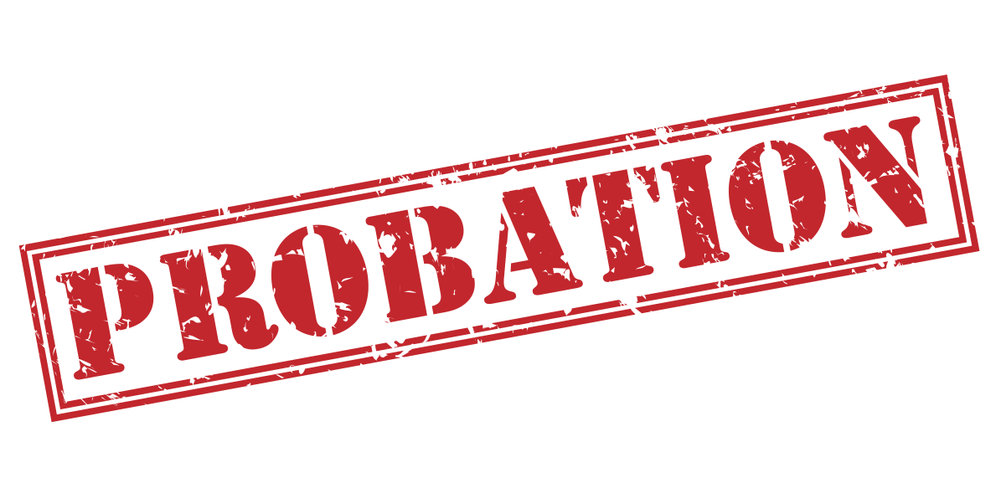If you are convicted of a criminal offense in Tennessee, there is a very good chance that you will be sentenced to complete a term of probation as part of your overall sentence. If you violate the terms of your probation, you could wind up back in jail or prison. To help you retain your freedom, a Murfreesboro criminal defense lawyer at Bennett | Michael | Hornsby explains common probation violations in Tennessee and how to avoid them.
What Is Probation?
With some exceptions, Tennessee law makes you eligible for probation if you are sentenced to a term of imprisonment of 10 years or less. Consequently,
most defendants convicted of misdemeanors or lessor felonies are sentenced to a term of probation that typically lasts from six months to several years, depending on factors such as the severity of the offense involved, the defendant’s criminal history, and the terms negotiated in a plea agreement.
Probation is a sentencing alternative offered in lieu of, or in addition to, time spent in jail or prison. Typically, a defendant is sentenced to a term of imprisonment with some or all that time “suspended.” That suspended time is spent on probation. For example, you might be sentenced to 365 days in jail with 335 days suspended and 335 days on probation. That means you will spend 30 days in jail followed by 335 days on probation. The important thing to understand is that those 335 days that were suspended remain hanging over your head while you are on probation. If you violate your probation, a judge can revoke your probation and order you to spend your suspended sentence in jail or prison.
Standard and Special Conditions of Probation in Tennessee
Every defendant sentenced to probation must abide by the “standard” conditions of probation. These conditions include things such as maintaining employment or attending school, reporting to your probation officer, abstaining from drugs and alcohol, and not committing another criminal offense. Some defendants are also ordered to abide by “special” conditions of probation that relate to the defendant’s circumstances and/or the facts of the case. Special conditions include things such as paying restitution to a victim, attending drug and alcohol rehabilitation, obtaining a mental health evaluation, or refraining from contact with a victim.
Common Probation Violations
Probation sounds like a great option for most defendants when the alternative is to spend time in jail or prison. It can be an excellent opportunity; however, it can also be easy to violate probation if you are not careful and a violation can send you right back to court facing jail time. To help you retain your freedom, be aware of these common probation violations:
- Failing to report. Initially, most probationers are initially ordered to report every week or every other week to an assigned probation officer. After a couple of months your reporting requirement may switch to monthly if you are in compliance. These appointments are mandatory, and you will probably not get much of a say regarding when to report. Failing to show up, however, can be an automatic violation. Do not miss an appointment unless you have a true emergency that you can document (such as a trip to the emergency room).
- New arrest. If you are arrested for a new offense while on probation, an automatic notice of violation is usually filed with the court. This is not a discretionary violation, meaning your probation officer does not decide if a violation is filed. Do not get arrested for a new crime while on probation.
- Failing drug test. As a probationer, you must submit to random drug and alcohol screenings. Some probationers fail to report because they are worried about testing positive for drugs or alcohol. Typically, failing to report is more likely to result in a violation being filed against you. Your probation officer usually has some discretion when it comes to handling a positive test, meaning you might be ordered to undergo a drug/alcohol evaluation and/or treatment in lieu of a violation being filed against you. Do not avoid your probation officer because you are concerned about testing positive for drugs or alcohol.
If a violation is filed, you have a right to legal representation at the subsequent hearing. An experienced criminal defense attorney may be able to get the violation dismissed or negotiate a favorable outcome that does not result in your return to custody.
Contact a Murfreesboro Criminal Defense Lawyer
If you have been notified of a probation violation filed against you in the State of Tennessee, consult with an experienced Murfreesboro criminal defense lawyer at Bennett | Michael | Hornsby as soon as possible. Contact the team today by calling 615-898-1560 to schedule your free appointment.
- The Art of Successful Co-Parenting During Divorce - April 19, 2024
- Elder Financial Exploitation: How to Protect Seniors - April 12, 2024
- How to Obtain Guardianship of a Minor in Tennessee - April 2, 2024





